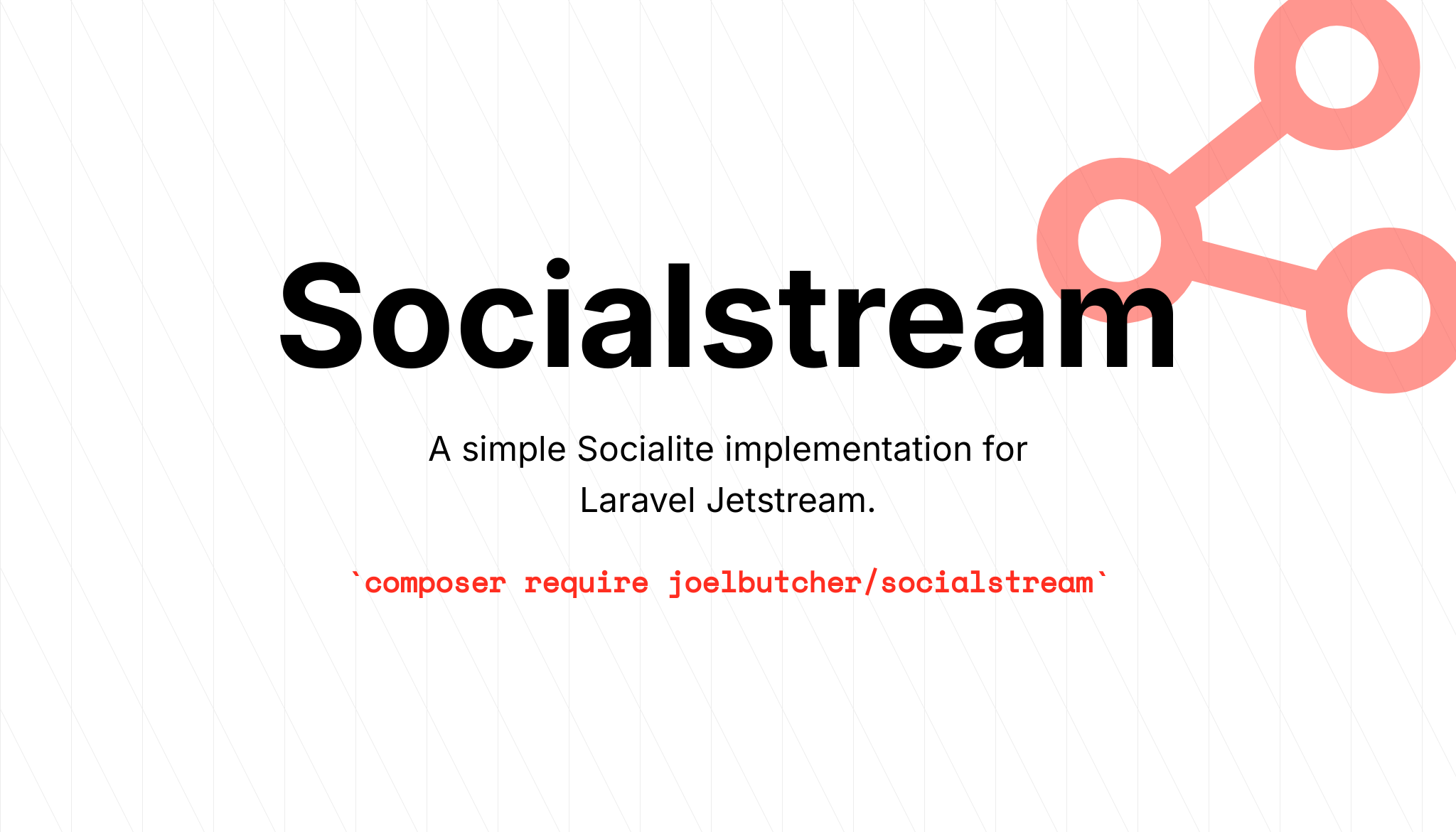
Socialstream — Laravel Socialite Meets Jetstream
Photo by Alexander Shatov on Unsplash
Earlier today I officially released the first version of Socialstream, a simple Laravel package that takes the scaffolding provided by Laravel Jetstream and integrates Laravel Socialite.

Jetstream is an application starter kit from the guys over at Laravel. It’s a frontend scaffold for the entire authentication layer of your application, providing registration & login, two-factor authentication, browser session management and optional team support, right out of the box. Jetstream is built on top of Laravel Fortify, a frontend agnostic authentication backend for Laravel. You can find the source code here:
https://github.com/laravel/jetstream
Socialstream started as a PR into Jetstream that surfaced as a result of a Github feature request from the creator of Laravel Debugbar.
After a month of development and discussion, the pull request was closed by Taylor since he and the team simply couldn’t take on the maintenance burden of the feature on top of all the other packages and apps they maintain. Fair play to them, between the four of them, they do A LOT of work!
Installation
Installing Socialstream is as simple as installing Jetstream. Just composer require it and run the install command. Easy!
composer require joelbutcher/socialstream
php artisan socialstream:install
Even though Socialstream requires Jetstream as a dependency, it doesn’t matter if you haven’t installed it. The command above will take you through all the necessary steps required to get you started with Jetstream and your preferred frontend stack.
Configuration & Setup
Once Socialstream is installed, it will publish a config file. In this config file, you can define whether or not the packages alterations should be shown, the middleware used to wrap the routes as well as the providers that you wish to use:
<?php
return [
'show' => true,
'middleware => ['web'],
'providers => [
'github',
'facebook',
'google'
],
];
Once you’ve defined your providers, you will need to provider client_id , client_secret and redirect keys for each in your services.php config file. E.g.
'github' => [
'client_id' => env('GITHUB_CLIENT_ID'),
'client_secret' => env('GITHUB_CLIENT_SECRET'),
'redirect' => env('GITHUB_REDIRECT'),
],
That’s it! Socialstream is installed, along with all goodness that ships with Jetstream. Head on over the to repo to checkout the docs and give it a spin:
Other articles you might like
 February 5th 2026
February 5th 2026
From 400-Line Import Controllers to 20-Line Configs in Laravel
The "Import Nightmares" We All Know If you've built business applications with Laravel, yo...
 February 4th 2026
February 4th 2026
How Big Tech Generates Initial-Based Avatars — And How You Can Do the Same in Laravel
If you’ve ever created an account on platforms like Google, GitHub, Slack, or Notion, you’ve seen it...
 January 24th 2026
January 24th 2026
Common Laravel Mistakes I See in Production (And How to Avoid Them)
Laravel makes it incredibly easy to build applications fast. But that same ease can lead to patterns...

The Laravel portal for problem solving, knowledge sharing and community building.







